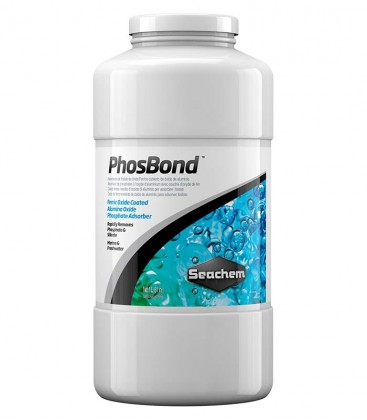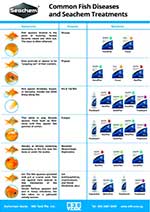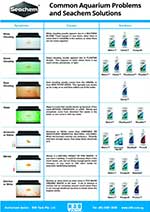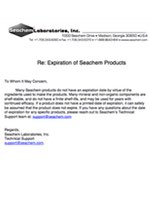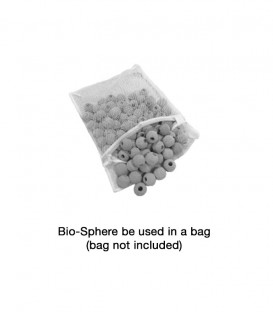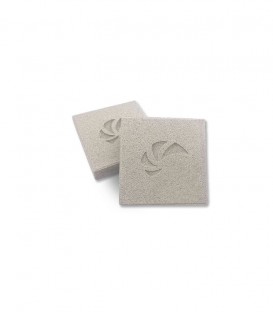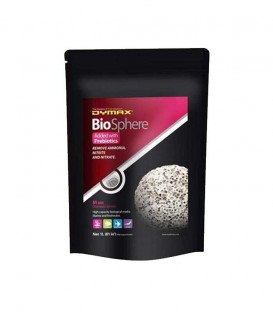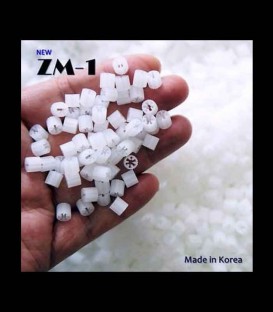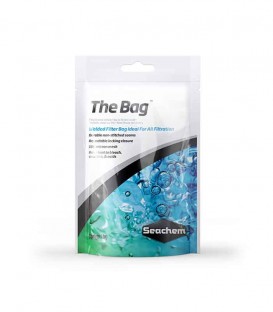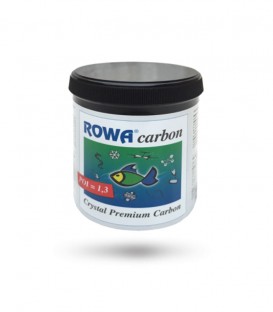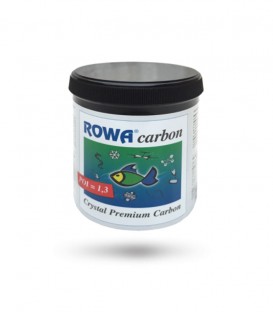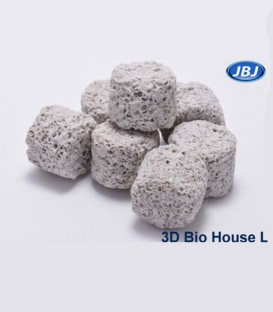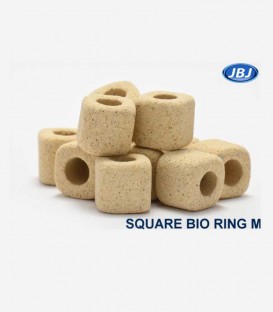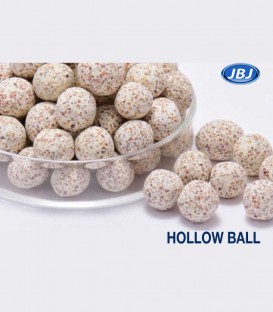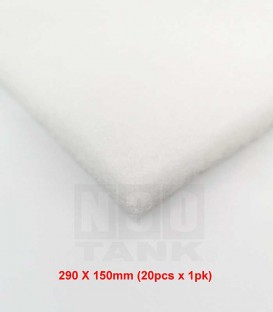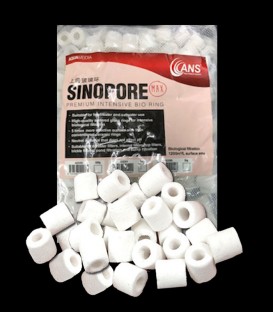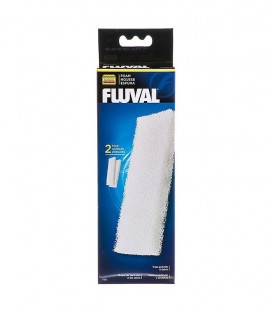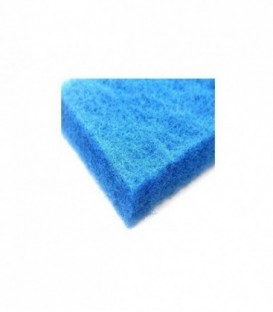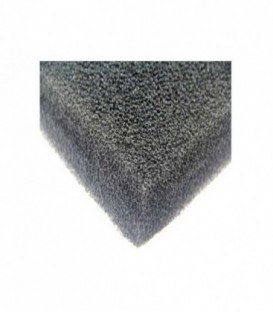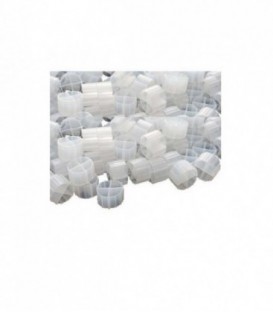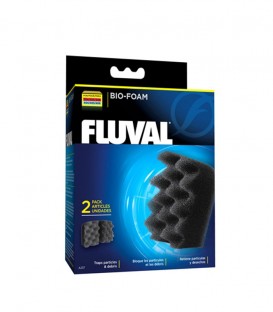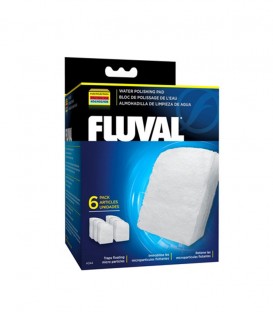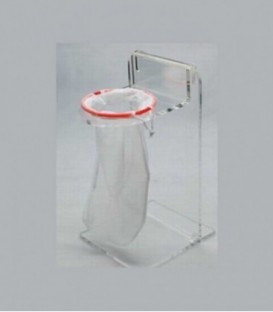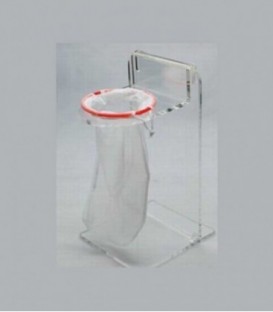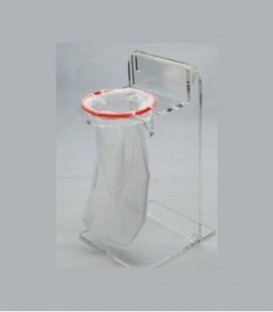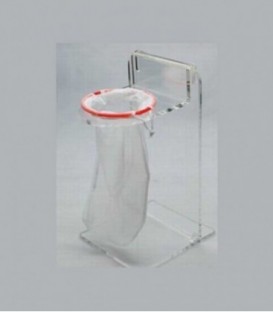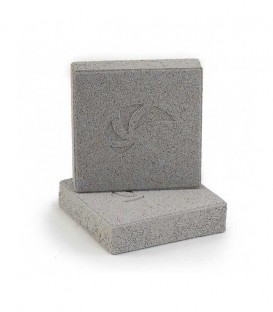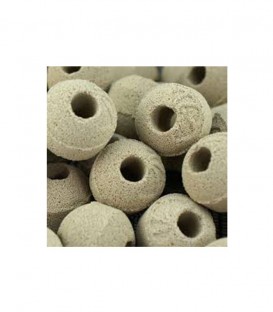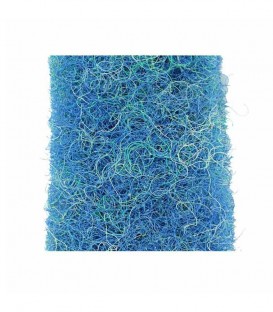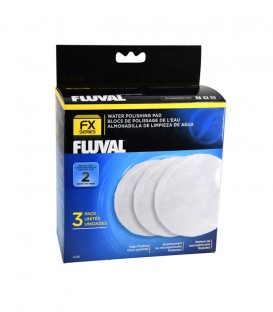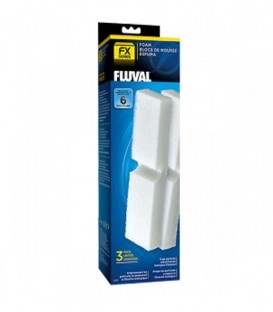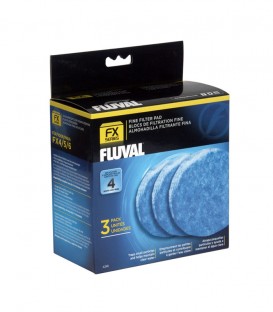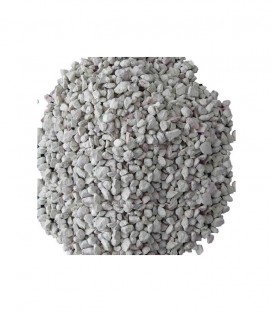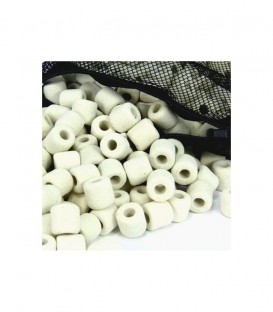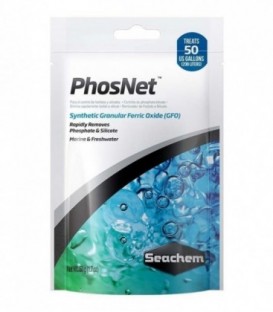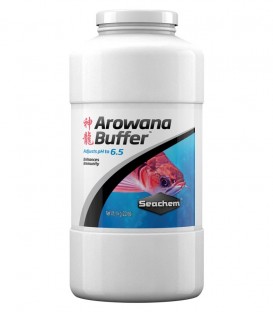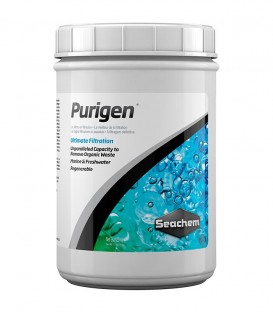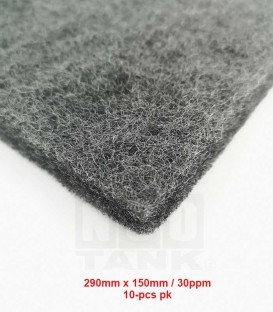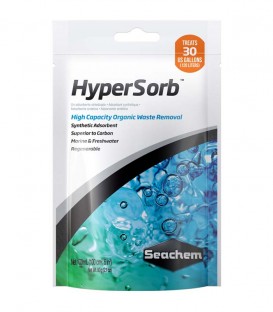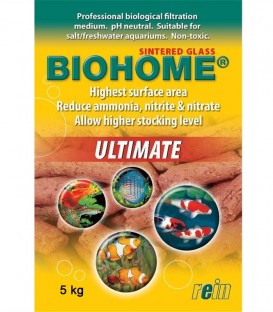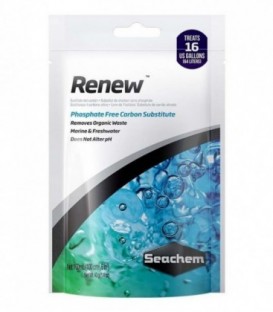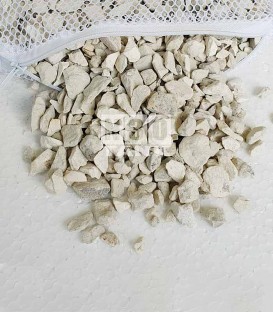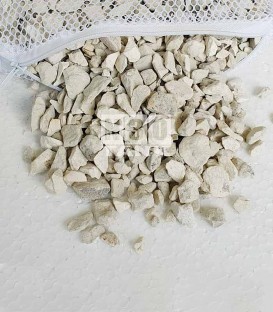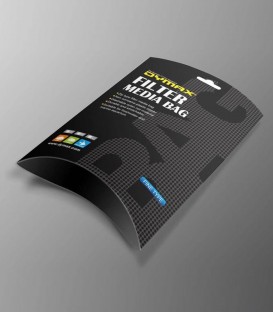Seachem PhosBond 1L (SC-1265)
- Rapidly removes phosphate & silicate
- Ferric oxide coated aluminium oxide phosphate adsorber
- High porosity and surface area give it a large binding capacity
Seachem PhosBond 1L (SC-1265)
PhosBond rapidly removes phosphates and silicates simultaneously from saltwater and freshwater. It is highly efficient and durable, and does not break down easily due to mechanical stress.
Advantages
PhosBond is a revolutionary new product that combines the phosphate removing capabilities of both aluminium oxide and granular ferric oxide into a singular material forming a synergistic effect. It rapidly removes phosphates and silicates from saltwater and freshwater, combining the best of both types of phosphate removers. Its high porosity and surface area give it a large binding capacity, while its physical strength and integrity assures that it will not break down from mechanical stress.
Directions
For best results, PhosBond should be rinsed before use and placed so as to maximise the flow of water through it but not so that it tumbles against itself in flow. It may be used in a canister filter, media chamber, box filter, or any high flow area of a trickle filter. Use of a filter bag such as The Bag is recommended.
Use 60 mL (1/4 cup) for every 200 L (50 US gallons) saltwater or 400 L (100 US gallons) freshwater. Leave product in place for 4 days, then test phosphate or silicate concentrations with either MultiTest Phosphate or MultiTestSilicate. If the concentration of the component you are trying to decrease has not dropped to around 0.02 mg/L, then replace the PhosBond, otherwise leave in place until levels begin to climb again. As long as concentrations remain under control, the product is not exhausted. Over treating is not recommended. PhosBond is not an exchange resin and does not release anything into the water. It does not leach phosphate or silicate back into the water and may be removed, dried, and returned to service until exhausted. Continuous use of small quantities is better than intermittent use of larger quantities.
FAQ
How do I use PhosBond? How long does it work and when is it exhausted?
A: PhosBond Is best used in smaller quantities and changed frequently. In an environment with an excessively high phosphate reading, PhosBond will exhaust rapidly (4 - 5 days). Place the product in a high flow rate area and test your phosphate levels, changing as needed. When you see that your level is below 0.2 ppm (mg/L) leave that portion of PhosBond in the filter. Continue to test weekly for phosphate until you see it begin to rise again. You will then know that it is time to change the PhosBond. If you have low levels of phosphate the PhosBond will absorb the silicate in your system. It is inert and safe to leave in your filter.
You claim that PhosBond has a high capacity, but Company X claims that their GFO has a capacity that is many times higher. Is this false advertising?
A: It is actually quite easy to change the apparent capacity of a GFO during testing. If the capacity of a GFO is tested at an extremely low pH with a phosphate concentration that is much higher than the media can completely, the media will temporarily absorb much more phosphate than it would under ordinary aquarium conditions. We have no interest in artificially puffing up our numbers, so the capacity we have listed is the amount of phosphate that the media can completely remove (without releasing back into the water) in a pH of 8.4.
Can I use PhosBond in a media reactor?
A: We do not recommend it, as the tumbling action of a media reactor can cause this media to produce dust.
How is this different from PhosGuard, PhosNet, and phosfiltrum (aquavitro)?
A: The main difference between these medias is capacity. PhosGuard has the lowest capacity at 0.82 mg/g of PO4 bound, but is the most economical of the four medias. PhosBond has a higher capacity than PhosGuard at 1.19 mg/g of PO4 bound, and combines the benefits of PhosGuard and a pure GFO (strength, high capacity, and rapid phosphate absorption) while still being very economical. PhosNet has the highest capacity of the Seachem phosphate absorbers at 1.41 mg/g of PO4 bound, and is a pure GFO media. Our aquavitro phosfiltrum is a super-high capacity GFO (1.71 mg/g of PO4 bound) that produces very little dust. This media has a higher capacity than any other GFO on the market.
I was told that products that contain aluminium oxide will release aluminium, which will close corals for weeks and might even damage them. Is this accurate?
A: In recent years, there has been speculation that aluminium oxide based phosphate removers like PhosBond release aluminium into the water and subsequently damage corals. The evidence to support this claim was largely anecdotal.
So, through a series of controlled experiments in both freshwater and saltwater, we intended to address both the question of aluminium solubility and aluminium toxicity. The results of these experiments show that under reef conditions (pH near 8) there is no detectable soluble aluminium released from alumina. Under conditions of low pH and high dosage levels, soluble aluminium can be released from alumina; at three times the label dosage rate, we detected 0.2 mg/L aluminium at a pH of 5.3.
Additionally, aluminium oxide is not easily absorbed into the cell to cause negative reactions. Even at three times the dose, soft-bodied corals such as Sarcophyton remain unaffected.
Company X says that I do not need to replace their phosphate absorber for several months, while your instructions say that PhosBond needs to be replaced every 4 days when reducing phosphate. Does not that make PhosBond an inferior product?
A: Not at all! If it takes a phosphate absorber several months to reach its full capacity when the tank has high phosphates, it means that the media is exceptionally slow at absorbing phosphate. PhosBond needs to be replaced every 4 days as long as there is a phosphate problem because, given an infinite amount of available phosphate, PhosBond absorbs phosphate so quickly that it reaches its full capacity in 4 days. The 4 day replacement period is a function of how quickly the media works, not a function of how high a capacity the media has.
Seachem Online Shop
N30 is the authorised dealer in Singapore for Seachem aquarium supplies.
Order your Seachem aquarium products online today at n30.com.sg
Which Seachem products do I need?
From treating fish infections to solving water and algae problems, Seachem has the right products to restore your aquarium.
Seachem - Fish Disease Treatment
A sick fish can spread infection quickly within an aquarium and threaten the life of other aquatic inhabitants. It is critical to accurately diagnose fish disease and dose the right medications as early as possible.
Seachem - Solve Aquarium Problems
Sometimes, a small change in water chemistry, alkalinity and acidity could cause problem for the aquarium. Below are some of the common problems:
- Cloudy water
- Algae over growing
- Ammonia, nitrite, nitrate toxicity
- Detritus or slime
Is your aquarium facing any of the above issues? If yes, use this guide to find the right Seachem products to restore your aquarium.
About Expiration of Seachem Products
Many Seachem products do not have an expiration date by virtue of the ingredients used to make the products. Many mineral and non-organic components are shelf-stable, and do not have a finite shelf-life, and may be used for years with continued efficacy. If a product does not have a printed date of expiration, it can safely be assumed that the product does not expire.
About N30 Tank
N30 Tank Pte. Ltd. is a leading manufacturer of custom-made fish tanks cabinets. As a tank maker, we supply aquarium cabinets to homes and offices locally as well as ship orders worldwide.
N30 provides expertise in the construction of large acrylic aquariums, such as those in Underwater World (Resort World Sentosa). We supply customised storage tanks to fish farms such as Qian Hu, and to major restaurants. The N30 brand name is trusted for quality workmanship in the industry.
N30 has developed unique glass-sealing techniques, which allows us to produce very large tanks (such as 30-feet long) without issue of water leakage. For all custom-made fish tanks, N30 assures customers of Five Years Warranty against water leakage.
To support the needs of aquarium hobbyists, N30 is also offering a wide range of aquarium accessories such as filters, pumps, lighting, wave makers, skimmers... for sale online. We encourage customers to browse and shop online at n30.com.sg for accessories. It is convenient and we provide free delivery for orders (see the online store terms and conditions for details).
Loyalty Points (N30 Member Rewards)
Earn 5 points per dollar
N30 members earn five points per dollar spent online at n30.com.sg. Each point is worth S$0.01 in cash value.
Convert points into eVouchers redeemable for discounts on your orders.
![]()
![]()
![]()
Example:
When you purchase S$100 of aquarium accessories online at n30.com.sg, you will earn 500 points in your N30 account. You may convert the 500 points into an eVoucher worth S$5. To use this eVoucher on your next order, simply enter the unique eVoucher code in your shopping cart before you check out. That's all!
The more you shop on n30.com.sg, the more you will save on your next order!

